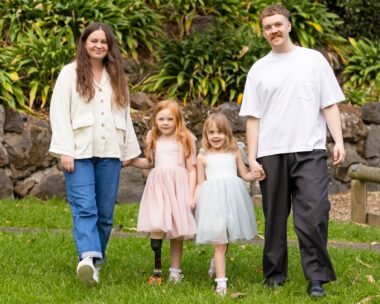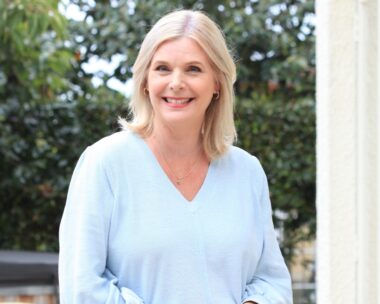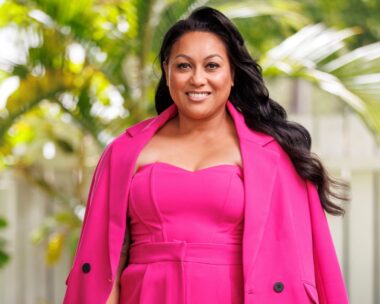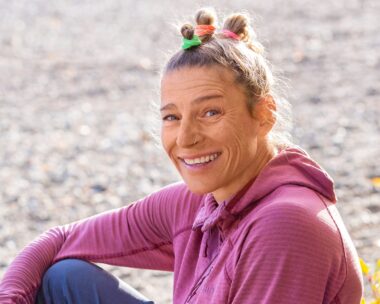Life is very different now from when I was an Olympic swimmer.
I won a bronze medal for Australia in the 1996 Atlanta Olympics and also competed in the Barcelona Olympics. I was born in Te Kuiti but we moved Down Under when I was young.
I won a swimming scholarship to the University of Nevada and I followed that with six months learning French in Paris and gained a Masters degree in international affairs and politics in Geneva. Sadly, when my special needs brother drowned, I was forced to re-evaluated my life and I chose to come home.

Lise and her fellow Vodafone volunteers were sent to Fiji shortly after Cyclone Winston hit earlier this year.
These days, I’m based in Wellington, but I’m one of the first on the ground after a natural disaster or emergency.
As a volunteer for Vodafone Foundation’s Instant Network Programme, which provides communications support after an emergency, I help change people’s lives.
I’m Vodafone’s Government Marketing Manager, so working in a disaster zone is very different from my day-to-day job! I’m the only woman out of 67 volunteers from 21 countries across Vodafone’s network to be deployed to a disaster zone and since joining in 2014, I’ve been sent to Vanuatu and Fiji after their devastating cyclones.
Although I’m not technical, my skills are useful in liaising with aid agencies, governments and the local people, as well as helping to tell their stories. After a disaster, the communication network is often down so we bring in our own mobile equipment, which is connected to a satellite. We provide free phone calls so people can ring their families and friends, and tell them what’s going on.
We went into a village in Fiji a week after Cyclone Winston hit and the locals still hadn’t been able to make or receive calls. They were so pleased to see us, they cried.

We also provide free Wi-Fi, which helps aid agencies to communicate with their offices and we leave our equipment behind until the local telco is able to get back on its feet.
I did my Hostile Emergency Awareness Training (HEAT) in Wales, which was tough. We learned everything from first aid and survival techniques to finding land mines and how to avoid being kidnapped.
There were three women on that course but I’m the only one who’s been deployed so far. My first experience was 10 days in Vanuatu in March last year after Cyclone Pam. I spend a lot of time in the field talking to the locals and hearing their stories.
As well as blogging about my experiences, I have presented to Vodafone staff in New Zealand, to show them what we do.

Last year, I did further training in the UK and was made team leader for the Fiji relief effort. We arrived three days after Cyclone Winston hit – there was debris everywhere and no fresh water or power.
On the island of Vanua Balavu, there were 18 villages who hadn’t been able to make contact with the outside world, so we brought in phones and they lined up to make calls.
One family was also able to post the death of a family member on Facebook. It’s how their family in the UK found out. These days, social media is so important after an emergency.
We also helped the local hospital give a couple of pregnant women ultrasounds. There was no power, so they plugged the ultrasound machine into our generator.
When people ask why I do this, I show them a photo of two Fijian sisters who are on the satellite phone, speaking to their families for the first time since the cyclone. The sheer joy on their faces is indescribable. I never knew it would be so satisfying to help those who need it most.
Although I gave up competitive swimming, I still keep fit and have recently taken up road cycling. I’m hoping to do the Lake Taupo race later this year. I’ve been so fortunate in my life that I’m happy to be able to give back.”
As told to Sharon Stephenson




